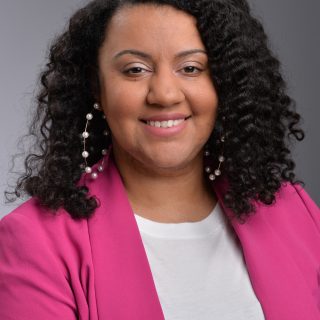The Homewood Hub serves graduate and undergraduate students in the Krieger School of Arts and Sciences (KSAS), the Whiting School of Engineering (WSE), and the Peabody Institute. We also serve visiting college students in the JHU Summer Pre-College Programs, Engineering Innovation sponsored by KSAS or WSE and visiting high school students in summer programs/courses.
Quick Links
- Get Started with SDS
- Meet the Staff
- Common Types of Disabilities
- Areas of Accommodation
- Transitioning to JHU
- Testing Center
- Voter Registration
- Getting Involved
- Student Employment Opportunities
- Study Abroad
- Faculty Resources and Information
- Parent Resources
Get Started with SDS
To request disability related accommodations or services for academics, housing, dining and/or transportation, all students must follow the University wide procedure for Getting Started with requesting accommodations
Meet The Staff
 Nicole Hoke Wilson
Nicole Hoke Wilson
Senior Director
 Meredith Harris
Meredith HarrisAssistant Director
Assistant Director
 Assistant Director – Jacqueline Irion
Assistant Director – Jacqueline Irion
 Disability Services Specialist – Annie Sacilowski
Disability Services Specialist – Annie Sacilowski
 Disability Services Specialist – Nicole Crutchfield
Disability Services Specialist – Nicole Crutchfield
Common Types of Disabilities
- Attention Deficit Hyperactivity Disorder
- Autism Spectrum Disorder
- Deaf/Hard of Hearing
- Learning
- Medical
- Neurological
- Physical/Mobility
- Psychological
- Temporary
- Low Vision/Blind
Areas of Accommodation
Academic Accommodations
The University provides accommodations to provide equitable learning experiences for all students. Academic accommodations may adjust the method in which academic tasks are accomplished without substantially altering the task itself or the academic rigor required. Academic accommodations can be for coursework, lectures, discussions, studios, and labs.
Fieldwork and Internships:
If you require accommodations for academic experiences outside of the classroom, such as fieldwork or internships, please contact SDS to discuss your needs and any anticipated barriers in the settings. SDS will collaborate with you, your department and the placement site/coordinator to develop and implement appropriate accommodations tailored to the specific setting.
Technical/Performance Standards:
All students must meet the technical and performance standards of their programs, with or without reasonable accommodations. These are the nonacademic, essential requirements necessary to successfully complete program requirements. SDS encourages you to review the technical/performance standards for your program and reach out with any questions to ensure clarity and understanding.
Common Academic Accommodations
- Extended time on exams and quizzes
- Reduced distraction space for exams and quizzes
- Permission to audio record lectures (Smart Pen, Glean, other recording device)
To request disability related accommodations or services, all students must follow the University wide procedure for Getting Started.
Housing Accommodations
There is a two-year residency requirement for all new students attending Johns Hopkins University. At JHU we provide comparable, convenient, and accessible housing to students with disabilities. Housing accommodations can be requested while recognizing that the purpose of on-campus living is not for studying or alleviating all fears, anxiety, stress, or discomfort.
Common Housing Accommodations
- Bring an Extra Mini Refrigerator
- Campus proximity
- Emotional support animal
- Kitchen access
- Homewood Campus
Eligible students must meet the posted deadlines and follow all policies related to the housing selection process. SDS shares disability accommodation approvals with On Campus Living for appropriate student placement. SDS articulates conditions necessary for a student’s access and does not dictate specific placement (e.g., a preferred building/room).
Applying for Disability Related Housing Accommodations
To request disability related accommodations or services, all students must follow the University wide SDS procedure for Getting Started.
Apply for housing through the Birdhouse (Housing Portal) by submitting your completed housing application. On the Birdhouse, make sure to select “yes” when answering “Are you requesting additional accommodations?” on the step labeled “My Additional Housing Needs.”
After submitting your application for SDS housing accommodations and requesting housing through the Birdhouse, SDS and On Campus Living will review the request for approval. Any housing accommodation found to be reasonable will be implemented based on the availability of housing that aligns with the approved accommodation. There may be instances in which students are assigned housing that meets their disability needs and may not be their building or room preference. We will do our best to meet your needs.
All requests for accommodated housing and supplemental documentation must be received by the Student Disability Services Office no later than 5:00PM EST on XXXXX. Please note you must still submit your Housing Contract online through the Housing Portal by 5:00PM EST on XXXXXX.
Dining Accommodations
Meal plans are required for all students living in University Housing. Hopkins Dining strives to create an inclusive eating environment by curating menus that meet the needs of the diverse student body. Students with food allergies or other medically- based dietary needs that may qualify as disabilities under the ADA. Meal plans offered by JHU to students, like any other benefit, may be subject to reasonable modifications for students with disabilities. Determinations as to whether a student’s food allergies or dietary needs constitute a disability are to be made on a case-by-case basis. To request disability related accommodations or services, all students must follow the University wide procedure for Getting Started.
Common Dining Accommodations
- Modified meal plan
- Dining dollars only meal plan
Peabody Institute:
There are two dining locations and students on the Peabody meal plan are able to eat at any Hopkins dining location using their meal plan.
Transportation Accommodations
JHU provides accessible transportation for JHU affiliates who require assistance traveling within the Homewood Campus including Peabody Institute. To request disability related accommodations or services, all students must follow the University wide procedure for Getting Started. If you are eligible for transportation accommodation, you will be provided access to download the accessible transportation app.
Physical Accessibility on Campus
The Homewood Campus is in the process of renovations and new construction. We also recognize that some classroom buildings are older and have barriers to accessibility. SDS works with the Office of the Registrar to ensure that students with mobility impairments have classes and other events scheduled in accessible locations.
Pre-Semester Planning: Prior to the start of each semester, SDS will contact students to discuss their course locations and any upcoming access needs.
Mid-Semester Changes: if during the semester you experience changes in your disability that impact your physical access, please contact your SDS advisor or email [email protected].
New or Temporary Disabilities: If you have a new disability or temporary injury impacting your physical access, please follow the University wide procedure for Getting Started.
For more information regarding accessible routes see Homewood Accessibility Map.
Transitioning to JHU
High School Students
The rights of students with disabilities are different in college from what they were in high school. It is important that high school students and their parents understand these differences and plan appropriately for their students’ transitions to post-secondary education.
Students in high school are covered under the Individuals with Disabilities Education Act (IDEA, 2004). IDEA gives all students in the primary and secondary levels the right to a free and appropriate public education. This includes providing students with accommodations, educational services, therapies, and curriculum modifications.
Students with disabilities in post-secondary education are covered under the Americans with Disabilities Act (ADA), the ADA Amendments Act, and Section 504 Subpart E of the Rehabilitation Act. These regulations give students at the post-secondary level the right to equal access to programs and services. Colleges and universities are not required to provide special educational services, therapies or curriculum modifications that fundamentally alter the nature of the program or class or aids, or devices or services of a personal nature. Colleges and universities routinely offer services to all students including tutoring, personal counseling, writing coaching, health and wellness programs, and study skills and time management training.
Graduate Students
Graduate education has distinct requirements from undergraduate programs. Previous accommodations you may have received might not align with your new program. SDS will work closely with you and your program to ensure your access needs are met across all settings and are tailored to the unique demands of graduate-level work. If your needs evolve or you encounter new challenges, reach out to your SDS advisor to review and update your accommodations.
SDS supports accommodations in areas like coursework, lab/fieldwork, qualifying/comprehensive exams, and thesis/dissertation. To request disability related accommodations or services, all students must follow the University wide procedure for Getting Started.
- Coursework: Masters and Doctoral level students are eligible for accommodations within their coursework
- Lab/fieldwork: If you are a graduate student requiring accommodation in a lab or fieldwork, we are here to support you. SDS will work closely with you as well as your lab and/or research area to develop and implement an individualized accommodation plan tailored to your needs. We understand that every setting is unique, and we aim to ensure that your accommodation aligns with the specific requirements of your program while maintaining accessibility and equity.
- Qualifying/Comprehensive Exams: These accommodations are designed to ensure equitable access and allow you to demonstrate your knowledge and skills without barriers. To ensure a seamless process, we recommend contacting SDS at least one to two months before your exam date.
- Thesis/Dissertation: Accommodations may be requested in all stages of your work, such as, proposal, research, collecting data, writing, and defense.
Please Note: PhD students at Johns Hopkins University may require accommodation to support their academic progress and equitable access. Accommodation for these students are collaboratively discussed and approved by Student Disability Services (SDS) and the Office of Institutional Equity (OIE).
Because the nature of accommodations can vary between academic settings (e.g., classroom or coursework) and professional environments (e.g., research labs, teaching, or workplace settings), these units work closely with the individual to define and tailor accommodations based on the specific context.
Student Disability Services
- Determines accommodations for any coursework/learning academic credits.
- Is the primary point of contact for PhD students, since they are always a student, but may not always have a work assignment.
- Collective Bargaining Agreement Required Appointment Letters: will specify Doctoral Funding Assignments or Benefits only Assignments since the compensation is for making adequate academic progress.
Office of Institutional Equity
- Determines accommodations for any work assignment not related to academic progress.
- Is the primary point of contact for PhD students seeking accommodations related to their work assignment.
- Collective Bargaining Agreement Required Appointment Letters and all Supplemental Letters: will specify Teaching Assistant, Research Assistant, or Other Assignments since they are doing hours of work for the compensation.
Visiting Students
Visiting students are students who are currently enrolled in high school or another university or have already obtained a bachelor’s degree and are interested in taking one or more courses at Johns Hopkins on a temporary basis during the fall or spring semester.
To request disability related accommodations or services, all students must follow the University wide procedure for Getting Started.
Post Baccalaureate
Post Baccalaureate refers to any academic work you complete post undergraduate graduation. Students can enroll in a post-baccalaureate program with a variety of goals: to complete a second BA/BS degree, to attain a graduate certificate, or to complete prerequisite courses for admission into medical school or other graduate programs.
To request disability related accommodations or services, all students must follow the University wide procedure for Getting Started.
Transfer Students
JHU welcomes transfer students from two- and four-year institutions worldwide. We are committed to supporting your transition and ensuring an equitable academic experience. If you have received accommodations at a previous institution, it is important to note that accommodations may vary due to differences in course designs, academic programs, and resources. SDS will work with you to determine appropriate accommodations that meet your needs within the context of JHU’s academic environment.
To request disability related accommodations or services, all students must follow the University wide procedure for Getting Started.